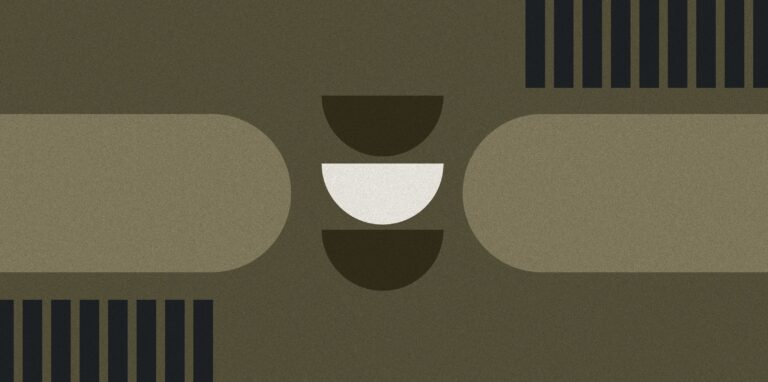Hope Is a Moral Choice
With Ariel Burger
“‘Never let anyone be humiliated in your presence’ is a very powerful starting point because it means that you can’t be indifferent. You can’t be a bystander. You are implicated in what happens. And that’s really fundamentally the shift, I think, between being a spectator and being a witness.”
| Question to LiveHow does the notion of hope as a moral choice settle in me? |
| Integration Step
“Never let anyone be humiliated in your presence.” Take that in. Carry it around. As you move through your day, notice when you default to being a spectator or a bystander. Commit to shift in some situation ahead to bearing witness instead. |
| Heart of the Matter
It is intriguing, this conjunction of hope and responsibility, and hope and moral choice, and hope as fuel for the long-term work of social repair. But also by this granular practice that Elie Wiesel taught and that was named here: “Never allow anyone to be humiliated in your presence.” That is an instruction that you can mull over and carry around and practice. And it would shift something. And the context of that invitation is the larger invitation to bear witness — to move from being a spectator or a bystander to being a witness. And of course, that would have external implications, but it is, again, also initially an internal reorientation. There is a narrative of our time, a trajectory of our time, of goodness, of generativity. And this language of “witness,” of this kind of visible, courageous orientation, is a wonderful image and practice to think about how to mobilize that. |

Transcript
Krista Tippett: Welcome back.
Today we are going to explore the notion of hope as a moral choice. We are delving into theological and mystical territory this time.
And what I also know and am going to demonstrate today with the teacher I’ve brought along is that theological and mystical depths are so much richer and more creative than is often imagined when the question is raised about a “religious perspective.” There is wisdom, which at once holds and evolves in the conversation across generations that this part of the human enterprise has carried forward. And there are words, vocabulary, and social and spiritual technologies that we need — I think of “confession” and “repentance” and “repair,” of “lamentation” and “forgiveness” and “redemption.” And religious tradition also offers this rich, rich delving into the meaning and the content of hope in human lives.
So our teacher today is Rabbi Ariel Burger, who has a rich rabbinic perspective on our time. He’s also an artist and a teacher. And his teacher, who was kind of over our conversational shoulder when I spoke with him, was the late, extraordinary Elie Wiesel, who wrote probably the defining memoir of the Holocaust, called Night. He survived, although his family members did not, and he became a figure of towering moral wisdom, actually, amidst the 20th century’s terrors. And the context in which Ariel Burger started talking to me about hope and introduced the language of hope was when our conversation got to the reality of reckoning with the fact that there is evil in the world. Elie Wiesel knew this as intimately as anyone can.
So here’s some of the conversation I had with Ariel Burger, where I asked him to take us a little bit inside what happened inside Elie Wiesel’s classroom, where he taught alongside him for a number of years.
It was really striking to me, when you write about that classroom in which you were formed with him, the big conversations and heated debates that took place about good and evil. There was this one moment you recount where this debate had flared, and “if you resist the idea that people are only evil, does that justify evil? Does it explain it away?” And he brought it down to this — I find this so stunning and so helpful, this — almost a litmus test for “How do you know you’re not doing that?” And he said a basic thing to hold yourself to, and he said, “The key in all of this is, never allow anyone to be humiliated in your presence. Whatever has happened in the past, we must deal with those who are here now.”
Even to walk around with that ethic — never to allow anyone to be humiliated in your presence — that gives me so much to think about and to work with.
Burger: You’re getting at something really challenging, because Elie Wiesel wouldn’t speak to Holocaust deniers, for example. He was invited to debate Holocaust deniers, and he refused because he didn’t want to dignify that position with a debate. So there was a line, and there were limits.
But I think he saw a world in which people who should be talking to one another are not, and could be, and at the same time a world in which terrible humiliations are happening right now. And he literally didn’t sleep well at night because he was so deeply aware of the suffering of people in the world at that moment. And it was one of the things that he gave his students, was a kind of insomnia. And I always tell people, I’d never wish insomnia on anyone, I want people to have really good, healthy sleep, but at least when we’re awake, we should be insomniacs. When we’re awake, we should be awake. And we should know that right now people are suffering and there’s something we need to do about it, even if it’s something small.
So never let someone be — never let anyone be humiliated in your presence is a very powerful starting point, because it means that not only can you not humiliate someone, but you can’t be indifferent. You can’t be a bystander. You can’t allow things to happen — you are implicated in what happens. And that’s really fundamentally the shift, I think, between being a spectator and being a witness.
And no one can live with that all the time, because we’ll just go mad. This is one of the things that — a lot of the great spiritual leaders struggled with depression because they were introjecting people’s suffering all the time. But it’s the kind of thing that we can practice. We can turn it into practices of sensitizing ourselves and feeling more and more implicated and building our muscle, to have that feeling of responsibility without any despair creeping in. And the more hope we have and the more capacity we have to choose hope, the more we can take responsibility for the world around us.
And that’s why, to me, hope is the first moral choice. It’s the thing that allows us to stay in the game and continue to do this work, which is a lifetime’s work and more than one lifetime. But if we give up, it’s over. We’re just choosing to allow people to be humiliated all the time in our immediate presence, and by extension, in our presence.
Tippett: I heard you talking about bearing witness in the course of 2020, and I’ve been thinking about that phrase ever since — that it’s a wonderful piece of religious language that is just distinctive. It’s additive to other ways that we speak and think and mobilize ourselves in a purely secular sense.
Burger The word “witness” appears in different contexts in very different ways, and obviously in a legal context, but also in meditation, we talk about witnessing your own thinking — that hairsbreadth of distance where you can reflect on your own thought process and begin to work with it consciously — that’s a shift to being a witness of your own mind. There are other contexts, as well — the religious context you were talking about. And I think it’s a very fruitful, rich word that I continue to find nooks and crannies hiding in it.
[music]
Tippett: I’m so intrigued by this conjunction of hope and responsibility, and hope and moral choice, and hope as fuel for the long-term work of social repair. But also by this granular practice that Elie Wiesel taught and that was named here: “Never allow anyone to be humiliated in your presence.” I mean, that is an instruction that you can mull over and carry around and practice. And it would shift something.
And the context of that invitation is the larger invitation to bear witness — to move from being a spectator or a bystander to being a witness. And of course, that would have external implications, but it is, again, also initially an internal reorientation.
To me, this is so resonant. It is a muscle to accompany that reality that I insist on believing in, that I think is the reason we’re all here in this space together talking about hope — that there is a narrative of our time, a trajectory of our time, of goodness, of generativity. And I think that this language of “witness,” of this kind of visible, courageous orientation, is a wonderful image and practice to think about how to mobilize that.
And in the Pause we will reflect on, we will live,
that question of bearing witness — how to become that.
This is the final session in this second Hope is a Muscle Course, but the adventure continues with the third and final course.
Please do move on, once you’ve let what we’ve just experienced settle in you. In the next course we walk alongside and practice with a circle of extraordinary, magnificent lives who embody hope: the late civil rights visionary Vincent Harding, the primatologist Jane Goodall, poet laureate Joy Harjo, Buddhist ecologist Joanna Macy, spiritual teacher Br. David Steindl-Rast — all of them wise elders. And the exuberant distinctly not-elder poet Jericho Brown taking us out with a call to be social creatives, whoever we are, wherever we live.
I’ll see you there.
